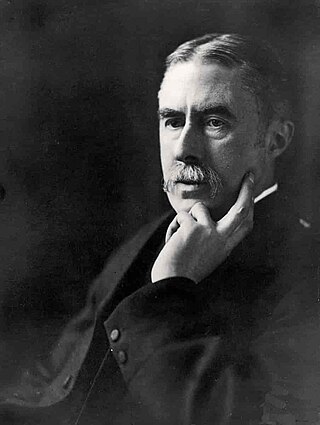
Alfred Edward Housman was an English classical scholar and poet. After an initially poor performance while at university, he took employment as a clerk in London and established his academic reputation by publishing as a private scholar at first. Later Housman was appointed Professor of Latin at University College London and then at the University of Cambridge. He is now acknowledged as one of the foremost classicists of his age and has been ranked as one of the greatest scholars of any time. His editions of Juvenal, Manilius, and Lucan are still considered authoritative.
Sir Edward Howard Marsh was a British polymath, translator, arts patron and civil servant. He was the sponsor of the Georgian school of poets and a friend to many poets, including Rupert Brooke and Siegfried Sassoon. In his career as a civil servant he worked as private secretary to a succession of the United Kingdom's most powerful ministers, particularly Winston Churchill. He was a discreet but influential figure within Britain's homosexual community.

Lieutenant-Colonel Charles Richard John Spencer-Churchill, 9th Duke of Marlborough,, styled Earl of Sunderland until 1883 and Marquess of Blandford between 1883 and 1892, was a British soldier and Conservative politician, and a close friend of his first cousin Winston Churchill. He was often known as "Sunny" Marlborough after his courtesy title of Earl of Sunderland.
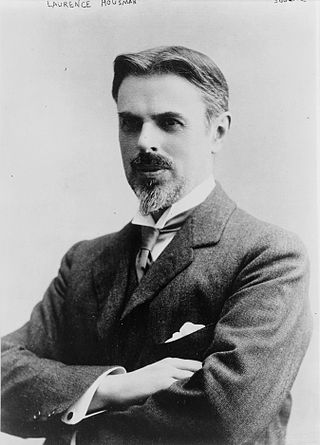
Laurence Housman was an English playwright, writer and illustrator whose career stretched from the 1890s to the 1950s. He studied art in London and worked largely as an illustrator during the first years of his career, before shifting focus to writing. He was a younger brother of the poet A. E. Housman and his sister and fellow activist in the women's suffrage movement was writer/illustrator Clemence Housman.
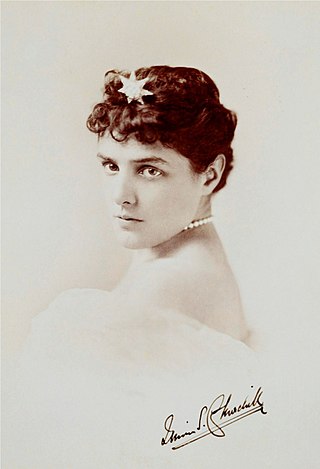
Jeanette Spencer-Churchill, known as Lady Randolph Spencer-Churchill, was an American-born British socialite, the wife of Lord Randolph Churchill, and the mother of British prime minister Winston Churchill.

Lord Randolph Henry Spencer-Churchill was a British aristocrat and politician. Churchill was a Tory radical and coined the term 'Tory democracy'. He participated in the creation of the National Union of the Conservative Party.

Major Randolph Frederick Edward Spencer Churchill was an English journalist, writer and politician.
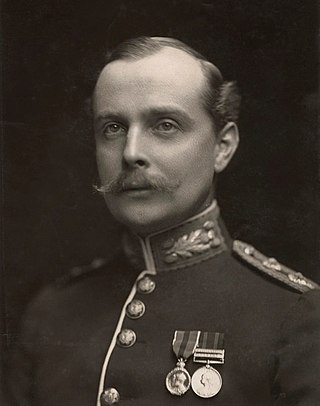
Major George Frederick Myddleton Cornwallis-West was a British officer of the Scots Guards. George Cornwallis-West was noted primarily for his marriages, the first to Lady Randolph Churchill, mother of Winston Churchill, and the second to the renowned actress Stella Campbell, who was also known on the stage as Mrs Patrick Campbell. George Bernard Shaw wrote the part of Eliza Doolittle in his play Pygmalion for her.
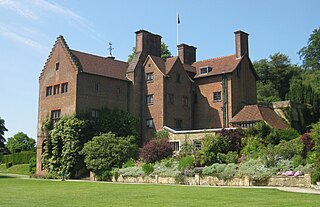
Chartwell is a country house near Westerham, Kent, in South East England. For over forty years it was the home of Sir Winston Churchill. He bought the property in September 1922 and lived there until shortly before his death in January 1965. In the 1930s, when Churchill was out of political office, Chartwell became the centre of his world. At his dining table, he gathered those who could assist his campaign against German re-armament and the British government's response of appeasement; in his study, he composed speeches and wrote books; in his garden, he built walls, constructed lakes and painted. During the Second World War, Chartwell was largely unused, the Churchills returning after he lost the 1945 election. In 1953, when again prime minister, the house became Churchill's refuge when he suffered a debilitating stroke. In October 1964, he left for the last time, dying at his London home, 28 Hyde Park Gate, on 24 January 1965.

Clementine Ogilvy Spencer-Churchill, Baroness Spencer-Churchill, was the wife of Winston Churchill, Prime Minister of the United Kingdom, and a life peer in her own right. While legally the daughter of Sir Henry Hozier, her mother Lady Blanche's known infidelity and his suspected infertility make her paternal parentage uncertain.

Major John Strange Spencer-Churchill, known as Jack Churchill, was the younger son of Lord Randolph Churchill and his wife Jennie, and the brother of former Prime Minister of the United Kingdom Sir Winston Churchill.

Samuel Rutherford Crockett, who published under the name "S. R. Crockett", was a Scottish novelist.

Sir Martin John Gilbert was a British historian and honorary Fellow of Merton College, Oxford. He was the author of 88 books, including works on Winston Churchill, the 20th century, and Jewish history including the Holocaust. He was a member of the Chilcot Inquiry into Britain's role in the Iraq War.

Savrola: A Tale of the Revolution in Laurania is the only major fictional work of Winston S. Churchill. The story describes events in the capital of Laurania, a fictional European state, as unrest against the dictatorial government of president Antonio Molara turns to violent revolution.

Winston Churchill, in addition to his careers as a soldier and politician, was a prolific writer under the variant of his full name 'Winston S. Churchill'. After being commissioned into the 4th Queen's Own Hussars in 1895, Churchill gained permission to observe the Cuban War of Independence, and sent war reports to The Daily Graphic. He continued his war journalism in British India, at the Siege of Malakand, then in the Sudan during the Mahdist War and in southern Africa during the Second Boer War.
This article documents the career of Winston Churchill in Parliament from its beginning in 1900 to the start of his term as Prime Minister of the United Kingdom in World War II.
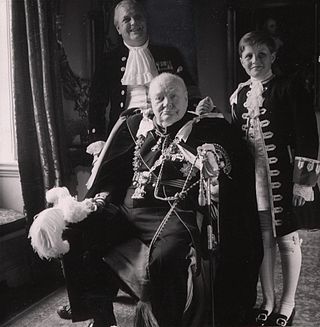
Sir Winston Churchill, Prime Minister of the United Kingdom between 10 May 1940 – 26 July 1945 and 26 October 1951 – 6 April 1955, was the eldest son of Lord and Lady Randolph Churchill, and grandson of the 7th Duke of Marlborough.

The early life of Winston Churchill covers the period from his birth on 30 November 1874 to 31 May 1904 when he formally crossed the floor of the House of Commons, defecting from the Conservative Party to sit as a member of the Liberal Party.
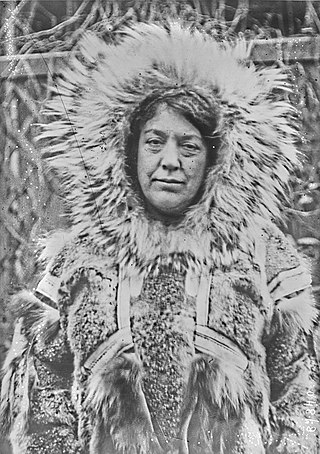
Charlotte Cameron was an American traveller and author.

The statue of Winston Churchill in Woodford, London, is a bronze sculpture of the British statesman, created by David McFall in 1958–9. The statue commemorates Churchill's role as the member for the parliamentary constituency of Woodford. Churchill was elected to the Epping seat in 1924 and held it until 1945 when the new constituency of Woodford was created. Churchill then held this seat until his retirement in 1964. The statue is a Grade II listed structure.


















